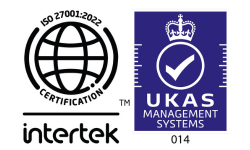Reduce Employment Tribunal Costs With HR Software
Employment Tribunals are a significant concern for business owners. With the increasing number of claims being brought against employers, it has become more important than ever to take steps to avoid the costly and time-consuming process of a tribunal.
What is an Employment Tribunal?

An Employment Tribunal is a legal body that deals with disputes between employers and employees. It is an independent tribunal that resolves claims made by employees against their employers, often regarding issues such as unfair dismissal, discrimination, wage disputes, and more. Tribunals provide an opportunity for both parties to present evidence and arguments before a panel of judges, who will then make a decision based on the facts presented.
Employment Tribunals are typically heard in an open court and can be time-consuming and costly. For businesses, the financial and reputational impact of a tribunal can be significant, not to mention the potential damage to employee relations. Therefore, preventing Employment Tribunals is a priority for any business owner or HR professional.
Why is it Important to Business Owners?
For business owners, Employment Tribunals can be a significant drain on both time and resources. Tribunals can be expensive, especially when legal fees, compensation claims, and potential damages are taken into account. In addition, businesses that lose a tribunal case may be required to pay compensation to the employee, which can be substantial depending on the circumstances of the claim.
Moreover, the reputational damage caused by an employment tribunal can have long-lasting effects on a company’s standing in the market. Negative publicity can impact customer trust, employee morale, and even recruitment efforts. It is vital for business owners to proactively prevent issues that may lead to disputes, ensuring that both the company and its employees are treated fairly and within the law.
How Employment Tribunals Affect Employees
While Employment Tribunals are a concern for employers, they also have a significant impact on employees. For employees, an employment tribunal is often seen as a last resort when other methods of resolving disputes have failed. Employees who bring claims to a tribunal are typically seeking justice for perceived wrongdoings, such as unfair dismissal, discrimination, or unequal pay.
Employees may feel that their grievances have been ignored or mishandled, leading to frustration and, in some cases, damaged professional relationships. The emotional and financial costs associated with tribunal proceedings can be significant for employees, which is why it is in the best interest of both employers and employees to avoid this route altogether.
Common Reasons for Employment Tribunals
There are a variety of reasons why an employee might bring a claim before an Employment Tribunal. Some of the most common causes of disputes include:
- Redundancy Pay: Employees may file a claim if they believe they have been unfairly selected for redundancy or if they have not received the appropriate redundancy pay.
- Equal Pay: Claims can arise when employees believe they are being paid less than their counterparts for performing the same or similar work.
- Unfair Dismissal: Employees who feel they have been dismissed without a valid reason or without following proper procedures may take their case to a tribunal.
- Breach of Contract: A claim for breach of contract may occur if an employee believes their terms of employment have not been honoured, such as not receiving agreed-upon benefits or pay.
- Unauthorised Deduction of Wages: Employees may file claims if their employer has made an unauthorised deduction from their wages, whether for mistakes, penalties, or other reasons.
- Working Hours: Disputes over working hours, overtime, or non-compliance with the Working Time Regulations can also lead to tribunal claims.
- Discrimination or Harassment: Employees may file claims if they have experienced unfair treatment based on their age, gender, race, disability, or other protected characteristics under the Equality Act 2010.
Each of these issues can be costly and time-consuming to resolve. However, understanding the causes behind these disputes allows employers to take proactive measures to avoid them.
How to Avoid Employment Tribunals
Preventing Employment Tribunals starts with good practices and effective management. The goal is to ensure that all processes are transparent, fair, and well-documented. Businesses that implement clear, consistent, and legally compliant procedures are less likely to face legal challenges. Here are some key steps to avoid employment tribunals:
1. Establish Clear Policies and Procedures
Having clearly written policies and procedures is essential for preventing disputes. Employees should be made aware of these policies and understand their rights and responsibilities. These policies should cover everything from workplace behaviour and discrimination to grievance and disciplinary procedures. It is important that these documents are regularly reviewed and updated to comply with the latest laws and regulations.
2. Provide Written Terms and Conditions
It is a legal requirement for employers to provide employees with a written statement outlining their terms and conditions of employment. This should include job responsibilities, working hours, pay structure, benefits, and any other relevant information. Providing clear documentation can help avoid confusion and misunderstandings that may lead to legal disputes.
3. Ensure Fair and Accurate Pay
Pay-related disputes, such as claims for unpaid wages or equal pay, are common sources of tribunal cases. Employers must ensure that all employees are paid correctly and fairly, in compliance with minimum wage laws and agreed-upon terms. Payroll errors can easily lead to claims, so businesses should prioritise accuracy and consistency when processing payroll.
4. Outsource Payroll to Avoid Mistakes
Managing payroll manually can lead to errors that may trigger employment tribunal claims. Outsourcing payroll to a reputable provider ensures that all calculations are accurate, tax regulations are adhered to, and employees are paid on time. This removes the potential for payroll mistakes, which can easily lead to disputes.
5. Implement Time and Attendance Software
Accurate timekeeping is essential for avoiding disputes over working hours, overtime, and pay. Businesses should implement reliable time and attendance software to track employee hours. This not only ensures compliance with employment laws but also helps to avoid misunderstandings related to employee working hours.
6. Maintain Comprehensive HR Records
Employers must keep detailed records of all employee communications, grievances, performance reviews, and disciplinary actions. In the event of a tribunal, having access to a complete record of all actions taken by the company can provide the necessary evidence to defend the business against claims.
How HR Software Can Help
HR software plays a crucial role in reducing the risk of Employment Tribunals by providing businesses with tools to manage and streamline HR processes. By automating key functions, HR software can ensure compliance, reduce human error, and provide an audit trail of all actions taken. Here’s how HR software can help:
- Consistency and Compliance: HR software ensures that processes are carried out consistently and in accordance with legal requirements. This eliminates the risk of mistakes or inconsistencies that could lead to a tribunal.
- Audit Trail: HR software keeps detailed records of all actions and communications related to employees. This creates a digital audit trail that can be used as evidence in the event of a dispute.
- Centralised Data: HR software provides a centralised platform for storing all employee-related data, including contracts, pay records, attendance, and performance reviews. This makes it easier to manage and access important information when needed.
- Standardised Communications: HR software helps to standardise communications across the organisation, ensuring that all employees are treated fairly and consistently.
- Reporting and Analysis: With built-in reporting tools, HR software can analyse trends and identify potential issues before they escalate. This enables businesses to proactively address any concerns that may lead to disputes.
By using PayEscape’s software, businesses can ensure they remain compliant with employment laws, minimise the risk of payroll errors, and maintain accurate records of employee data.
PayEscape’s software also offers a fully integrated system, meaning businesses can easily manage all HR functions, including payroll, time tracking, and employee management, from a single platform. In conclusion, the cost and time associated with Employment Tribunals can be significant for businesses.
By implementing a proactive approach that includes clear policies, accurate record-keeping, and the use of reliable HR software like PayEscape, businesses can mitigate the risk of facing a tribunal.
Updated 01/03/2025
















